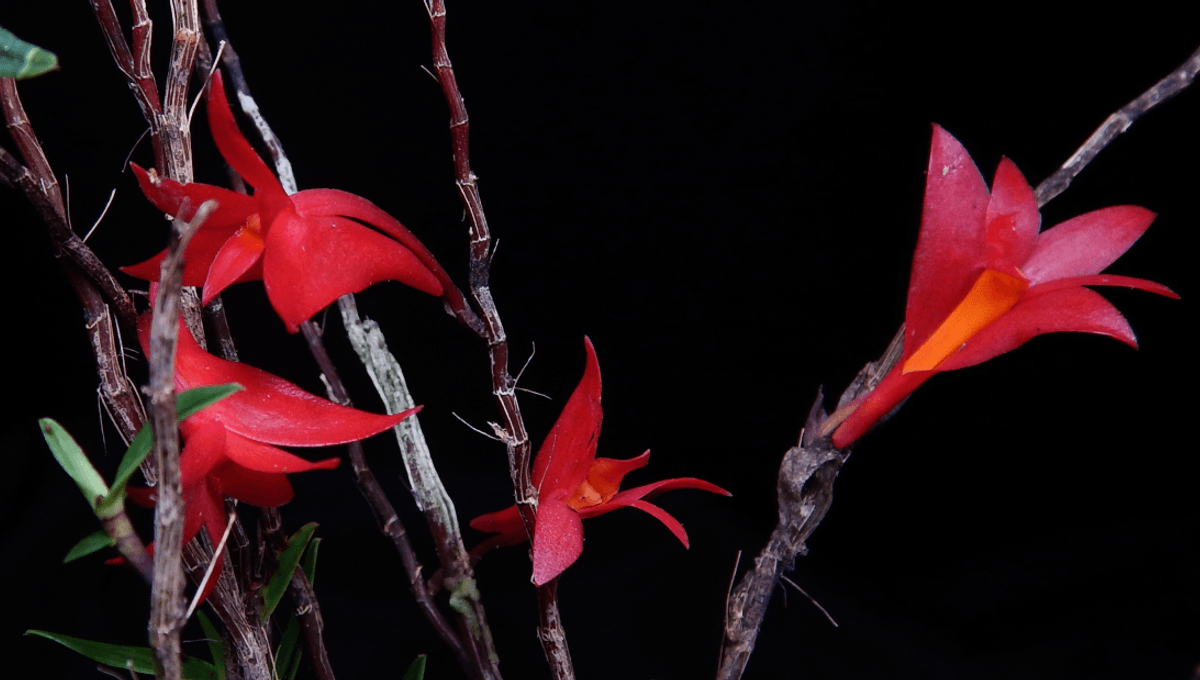
A long-lost species of orchid had scientists scrambling over the summit of Mount Nok on Waigeo – a remote island in West Papua, Indonesia – in the hopes of tracking it down. The successful expedition not only rediscovered the blue beauty Dendrobium azureum, but also stumbled upon a new-to-science species that was bright red.
The blue orchid hadn’t been seen in 80 years, motivating a team joined by Kew orchidologist Dr André Schuiteman to go in search of it in 2020. In their search for D. azureum, they summited the extinct volcano Mount Nok on Waigeo, which is the largest of the four main islands in the Raja Ampat archipelago.
Their efforts were rewarded as the volcanic hunt yielded not one but two orchid discoveries: the blue orchid was alive and well, and they got a second new-to-science species to boot.
The newly discovered orchid species was related to the blue one as a fellow Dendrobium sp. orchid, but instead of azure flowers, it had bright red ones. It was named Dendrobium lancilabium, subspecies wuryae, in honor of Hj. Wury Estu Handayani Ma’ruf Amin for her contributions to the conservation of orchids and other local flora in West Papua province.
It joins nine other orchid subspecies to be named from Indo-China and Southeast Asia since December 2022 by Schuiteman and his local partners. The search for “lost” species like D. azureum is something that scientists worldwide are doing for a host of animal, plant, and fungi species. Success stories in recent times include bioluminescent fairy lanterns and tap-dancing spiders, but finding a lost and new species together is a double win in the context of climate change.
“It is imperative now, more so than ever, that we do everything in our power to go out into the field with our partners and work out which species of plants and fungi we haven’t given a scientific description yet,” said Dr Martin Cheek, Senior Research Leader in RBG Kew’s Africa Team in a release sent to IFLScience. “Without doing so, we risk losing these species without ever even knowing they existed.”
“That is not to say the outlook is completely bleak. It is an incredibly exciting time to be a scientist but even as we make these wonderful new discoveries, we must remember that nature is under threat, and we have the power to do something about it.”
See Kew’s top 10 new species of 2023.
The study is published in Orchideen Journal.
Source Link: Hunt For Lost Blue Orchid On Extinct Volcano Finds Brand New Fiery Red Species